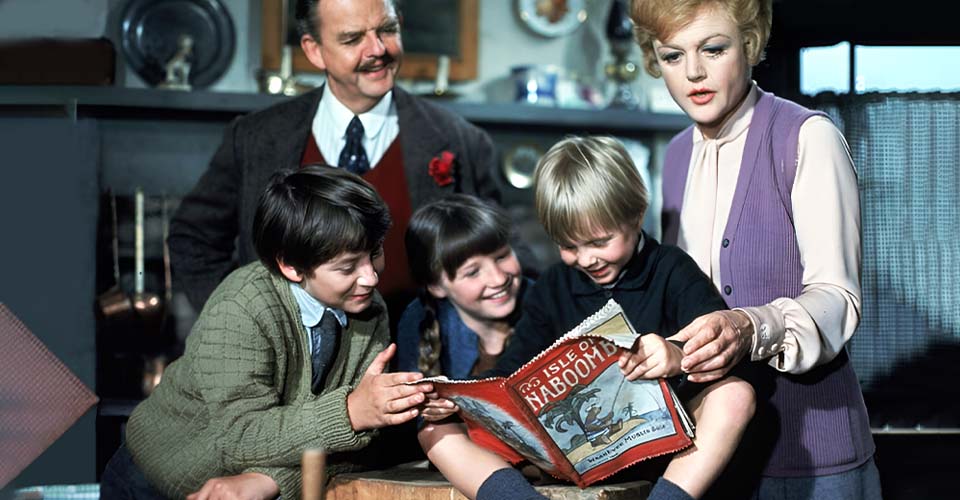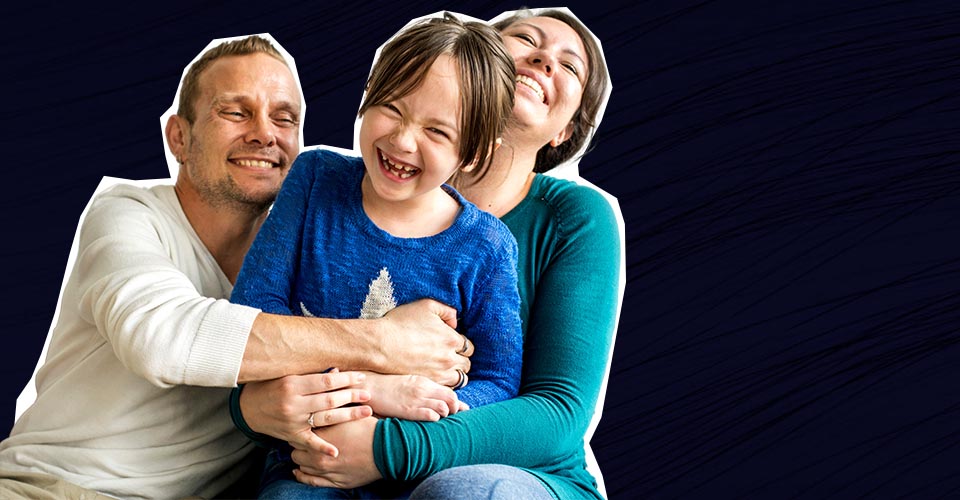Childhood is usually perceived as a stage characterized by innocence, happiness and optimism without limits. All parents try their best to provide a safe place for their children to grow up healthy.
However, even with the right motives at heart, there are some typical errors made in bringing up kids that might unintentionally lead them into an unhappy future when they become adults.
The following are 10 mistakes which can prevent emotional welfare and happiness among children during their journey towards maturity.
10 Common Parenting Mistakes
Parenting can be a very daunting experience. This is true especially when you fear that you may not do everything right. But it’s okay to make mistakes because everyone does including parents themselves.

If you want to become a better parent, there are some common parenting mistakes you should avoid. Overcoming these common parenting mistakes will help you become more successful in your role as a mother or father.
Here are 10 common parenting mistakes that could be avoided:
1. Allowing them to avoid responsibility
While chores may seem like a burden or additional stressor for your children, sharing the load at home can actually help foster this virtue of citizenship.
Tasks that are appropriate for their age make them feel accomplished and competent. Therefore, whether it is the laundry or the trash that you ask them to lend a hand with, duties give children an opportunity to see themselves as capable individuals.
2. Not letting them learn from failure
Nobody likes seeing their kid fail, get rejected, or screw something up in general. But when they do so many parents swoop in and save their child before they hit rock bottom.
What these moms and dads don’t realize is that doing everything possible to keep your kid from making mistakes teaches them nothing about how to bounce back after life knocks you down.
Life’s greatest teacher is failure; each mistake we make presents an opportunity for growth if approached correctly.
So next time your son forgets his cleats before an important soccer game or daughter answers few math questions incorrectly on test, remember that every misstep taken provides chance develop mental fortitude necessary succeed next round.
Read More: Newborn Feeding Mistakes: 10 Expert Tips For Parents And Alternate Methods!
3. Not allowing them to feel their feelings
It’s hard watching our kids experience negative emotions such as sadness or anger however it’s important not always try cheering them up when sad or calming down when angry because suppressing what one feels can be dangerous. One of the common parenting mistakes is over protecting your child.

Responding to children’s emotional displays helps shape self-esteem level and also impacts greatly on their overall development of emotional intelligence (EI).
We should help young people recognize those things that trigger off different moods and show ways through which they can control these tendencies better later in life by using proper vocabulary frameworks about expressing oneself emotionally
4. Supporting a victim mentality
Telling your child, “We can’t buy new shoes like the other kids because we’re poor” may make them think that they have little control over many aspects of life.
Children who realize that they do indeed have choices in life become more confident about their power to create a better future for themselves.
Don’t let your children throw self-pity parties or exaggerate misfortune; prompt them to take constructive action instead (e.g., opening a lemonade stand to earn money for desired items or necessities). Children who realize that they do indeed have choices in life become more confident about their power to create a better future for themselves.
5. Too much protectiveness
Yes, it’s true that keeping your child within arm’s reach at all times saves you a ton of worry. But protecting them from every challenge under the sun only inhibits growth.
Think of yourself as a guide rather than a guardrail. Even if it means biting your nails and losing sleep, allow kids to navigate life on their own sometimes — doing so will help foster belief in their ability to handle whatever comes their way.
6. Demanding perfection
Expecting too much can be just as harmful as expecting too little. Kids may not even attempt something if they see expectations surrounding it as impossibly high, or believe they can never meet those expectations.

Lay out long-term goals with clear expectation levels, and establish checkpoints along the way. For example: Going to college is an end goal; getting good grades, doing homework and reading are benchmarks along the path there.
Read More: Overcoming Parenting Anxieties: 10 Helpful Tips for New Moms
7. Discipline, not punishment
Children should understand that certain actions can have serious consequences. However, punishment and discipline are two different things. Kids who are disciplined think “I made a bad choice.” Kids who are punished think “I’m a bad person.”
In simpler terms, punishment undermines hope for change by suggesting to the child that they cannot be better while discipline instills it.
8. Ignoring problems
Many parents spend months or even years feeling frustrated because they believe that there are certain issues which simply cannot be solved or that they should accept them.

These common parenting mistakes include children fighting bedtime, frequent night awakenings or tantrums as well as behavior problems in older kids.
Most of what you face as a parent may take some hard work to get through and change or fix but with some help. There were no instructions attached to your baby’s arrival into this world; nevertheless, many books, websites and people can guide you through parenting challenges.
When faced with tough or persistent troubles seek advice from your pediatrician or other healthcare professionals
9. Fight back
In his book ‘Setting Limits With Your Strong-Willed Child’, author Robert MacKenzie describes fighting back as a “family dance”, where we can get stuck in unhealthy communication patterns. We are not talking about physically fighting with your child; there are other ways of fighting like getting angry, shouting or repeating oneself over and over again.
Fighting or arguing with our children gives them negative attention and a lot of power over us because they know how to elicit strong reactions from us. Instead of stopping problem behaviors, fighting back will unconsciously reward the behavior that you want to see less often.
Rather than fighting back; end power struggles and discover more effective discipline methods such as time-out and using logical/natural consequences – but not before wasting time on fights.
10. Not Setting an Example
Children learn what is acceptable and what isn’t by observing models in their environment, according to Dr Guarnotta. The single most influential model for children is their parents because they spend most of their time around them.
Being a good role model and avoiding common parenting mistakes also helps kids pick up healthy habits. For example, seeing conflict resolution skills being used in positive ways can be very helpful for children.
“When parents lead with positive and healthy behaviours, it teaches children how to handle challenges or stressful situations” says Dr Gulotta. “They also learn how to relate well with others through interpersonal skills.”
Listening also proves to the child that he/she matters thus strengthening the bond between you two adds Dr Gulotta who says when you give your full attention while listening this helps them build up self esteem at same time knowing importance of listening others.
“Youngsters whose ideas seem unimportant due lack parental ears may feel neglected leading low self worth” warns her colleague adding failure meet anyone’s expectations throughout life might result into always feeling unworthy since nobody ever approves anything done right.
Read More: 10 Characteristics Of A Role Model Parent You Should Know!
A Word From Mind Family
As we conclude our exploration of common parenting mistakes, it’s important to remember that raising children is a complex and challenging journey. While it’s natural for parents to want the best for their children, it’s also inevitable that mistakes will be made along the way.
At Mind Family, we understand the importance of supporting parents in their journey of raising happy, healthy, and resilient children. Through education, guidance, and support, we aim to empower parents with the knowledge and tools they need to navigate the ups and downs of parenting with confidence and grace.
Remember, parenting is not about perfection; it’s about love, patience, and growth. By acknowledging our mistakes, seeking support when needed, and striving to be positive role models for our children, we can create a brighter future for the next generation.
Frequently Asked Questions (FAQs)
Why is childhood important?
Childhood sets the foundation for emotional well-being and happiness in adulthood, shaping individuals’ future experiences and relationships.
Are parenting mistakes common?
Yes, parenting mistakes are common and natural. Acknowledging and learning from them is part of the parenting journey.
How can parents become better at parenting?
Parents can become better by recognizing and avoiding common parenting mistakes, seeking support, and prioritizing their children’s emotional and developmental needs.


















Leave a Reply